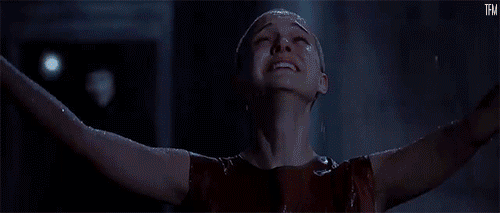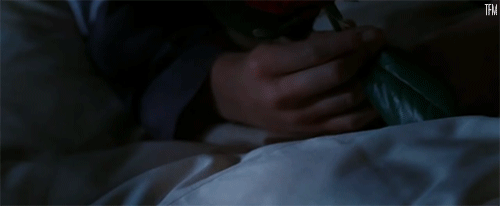The 10 Greatest Moments of Gun Powder, Treason and Plot in ‘V for Vendetta’
Remember, remember,
The fifth of November,
The Gunpowder treason and plot;
I know of no reason
Why the Gunpowder treason
Should ever be forgot.
Every autumn, the people of the United Kingdom light bonfires and spark fireworks in a time-honoured tradition commemorating the capturing of Guy Fawkes, a York-born man caught guarding a selection of explosives intended for parliament and particularly King James I in 1604. Whether Fawkes was a murderer, a terrorist or a revolutionary is a question that has been pondered for over 400 years, so when Alan Moore’s comic book series V for Vendetta sought to explore the story in its own near-future fictional universe, fans clamored for a theme driven text that went down in history as one of the best selection of stories ever put to print in the comic book realm, and would eventually be adapted to the big screen by the Wachowskis (The Matrix, Cloud Atlas) and their director James McTeigue. Starring Hugo Weaving, Natalie Portman and John Hurt, the movie became a cult phenomenon, with masks of its main character, V, becoming a symbol of revolution the world over.
Revolution: a forcible overcoming of a government or social order, in favour of a new system.
This is precisely why we at The Film Magazine have chosen to present the 10 most notable moments from V for Vendetta in this very post. Disagree with us? Make sure to leave a note in the comments!
10. V’s Introduction
Saving Evey (Portman) from the oppressive state, V’s introduction can be summed up in his opening dialog: “Voila! In view humble vaudevillian veteran, cast vicariously as both victim and villain by the vicissitudes of fate. This visage, no mere veneer of vanity, is a vestige of the “vox populi” now vacant, vanished. However, this valorous visitation of a bygone vexation stands vivified, and has vowed to vanquish these venal and virulent vermin, van guarding vice and vouchsafing the violently vicious and voracious violation of volition. The only verdict is vengeance; a vendetta, held as a votive not in vain, for the value and veracity of such shall one day vindicate the vigilant and the virtuous. Verily this vichyssoise of verbiage veers most verbose, so let me simply add that it’s my very good honour to meet you and you may call me V.”
9. Evey Is Reborn
Evey walks right out of the prison she’s been tortured in only to discover that it has been V who has been torturing her. Angry and upset, she confronts the masked vigilante and runs to the same roof V first took her to for some fresh air. She screams out as the score lifts, and we are all invited to witness her becoming of a martyr for V’s cause. As she is shown to understand the truly personal nature of oppression, we too feel it through her.
8. The Story
Meeting with the men tasked with finding you was always risky and V even got away with it wearing this costume! What’s not to love?! In terms of the meaning of the movie itself, we were finally given the backstory we had long since craved regarding our protagonist, and as such could satisfactorily declare that he was a “good guy”, ensuring that we began to feel the righteous presence of the character just as the people of the UK were doing within the universe of the movie at the same time.
7. “I Killed You 10 Minutes Ago”
In the midst of a V killing spree, we see a more intimate and caring side of the character and we, importantly, hear the story of those on the other side of the war to our key protagonists.
Delia: You’re going to kill me now?
V: I killed you 10 minutes ago while you slept.
Delia: Is there any pain?
V: No.
Delia: Thankyou. Is it meaningless to apologise?
V: Never.
Delia: I’m so sorry.





